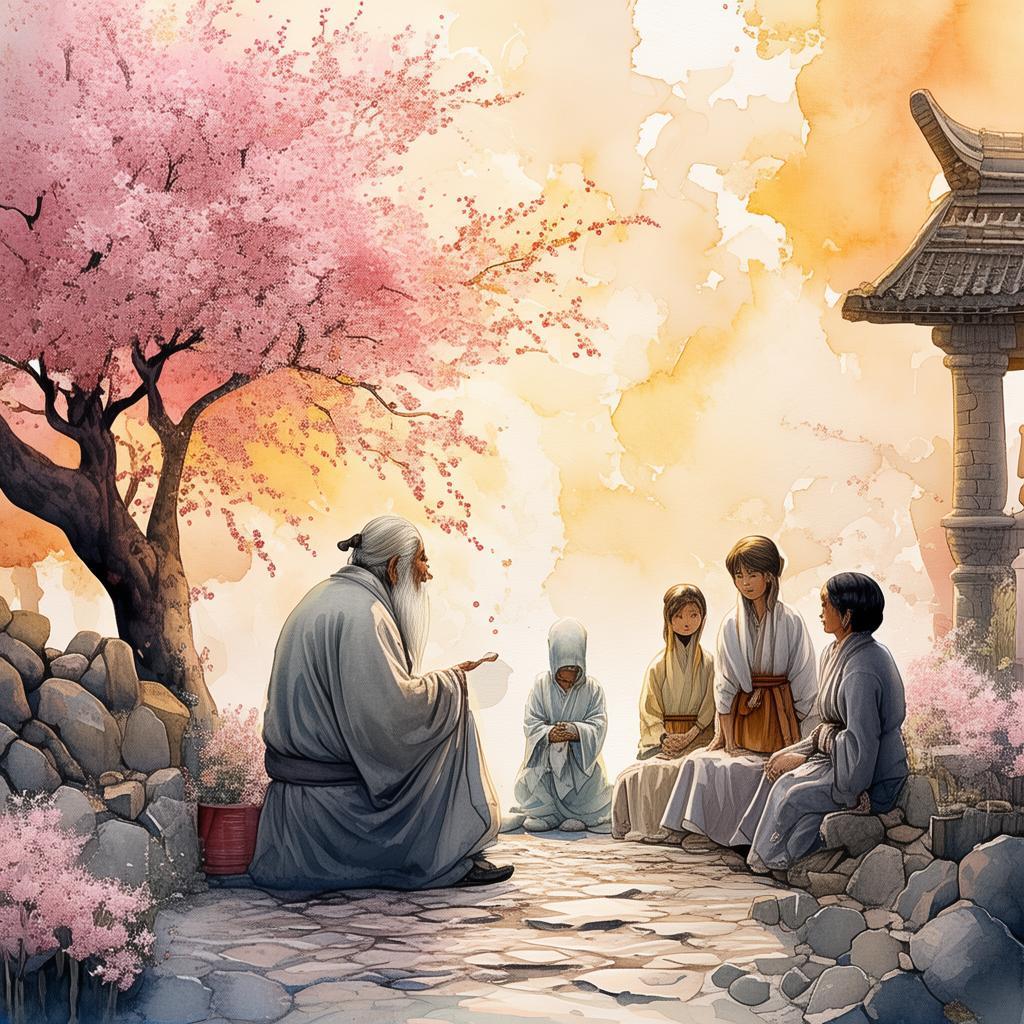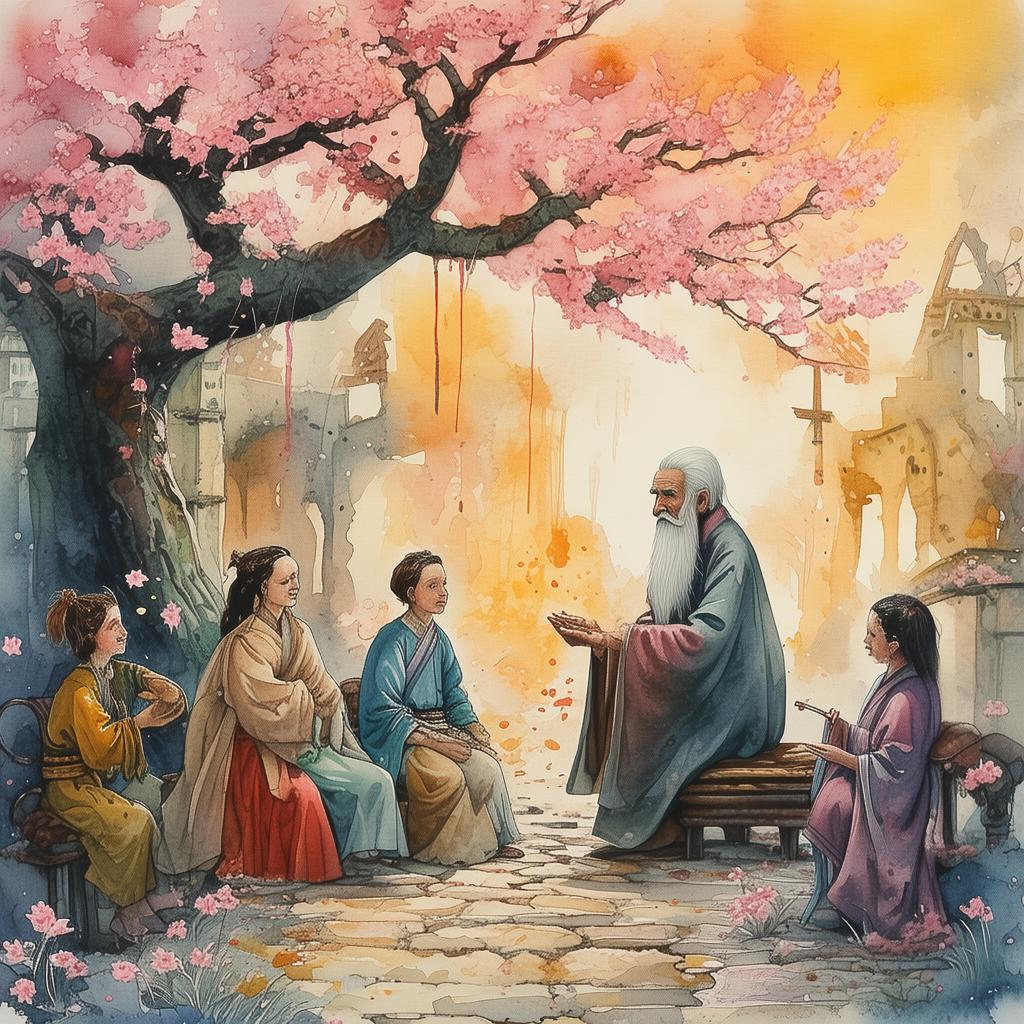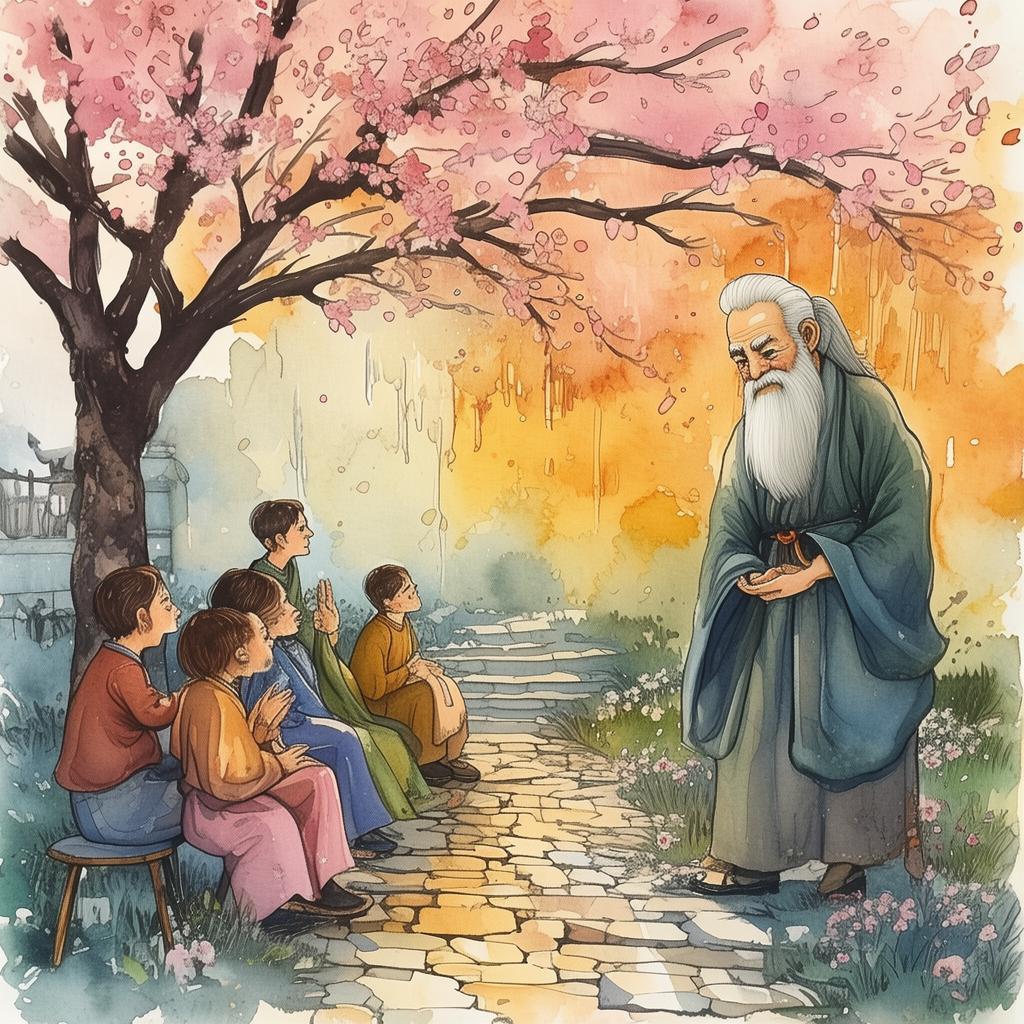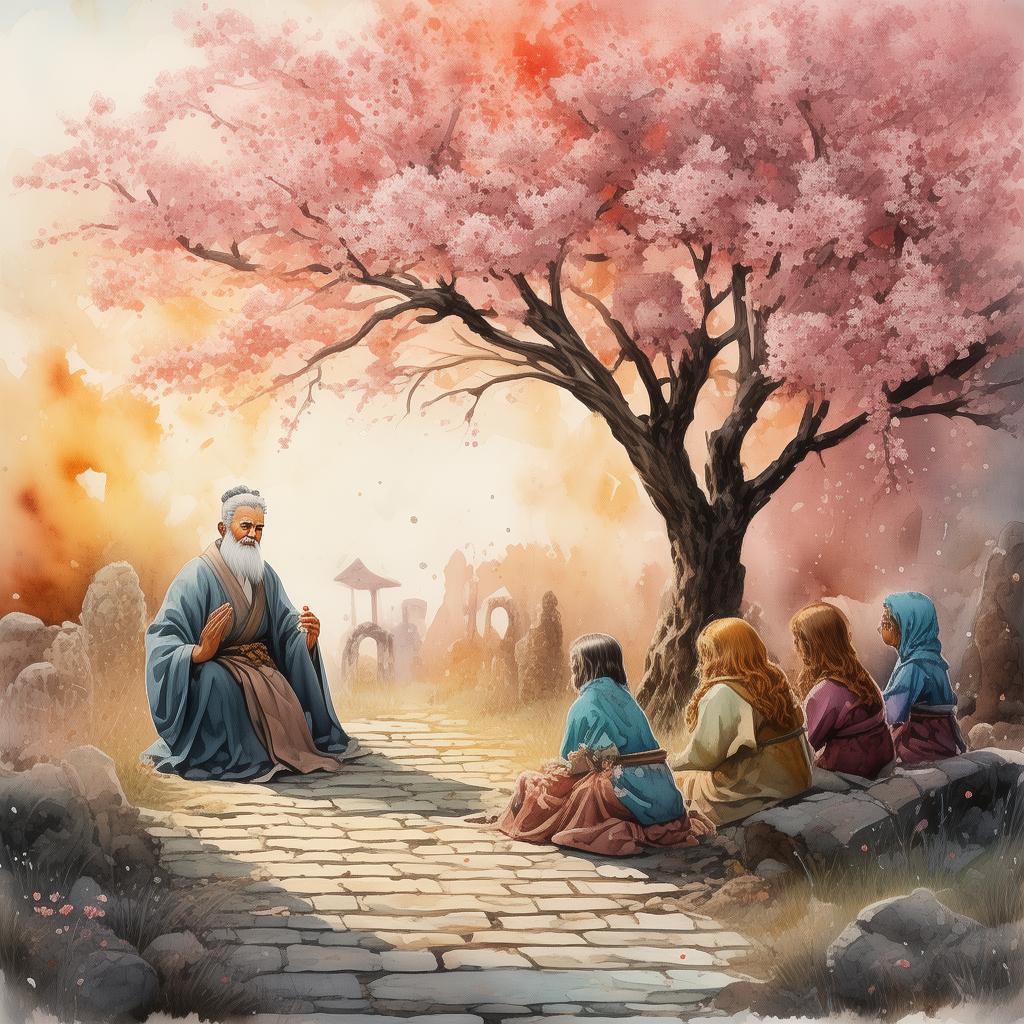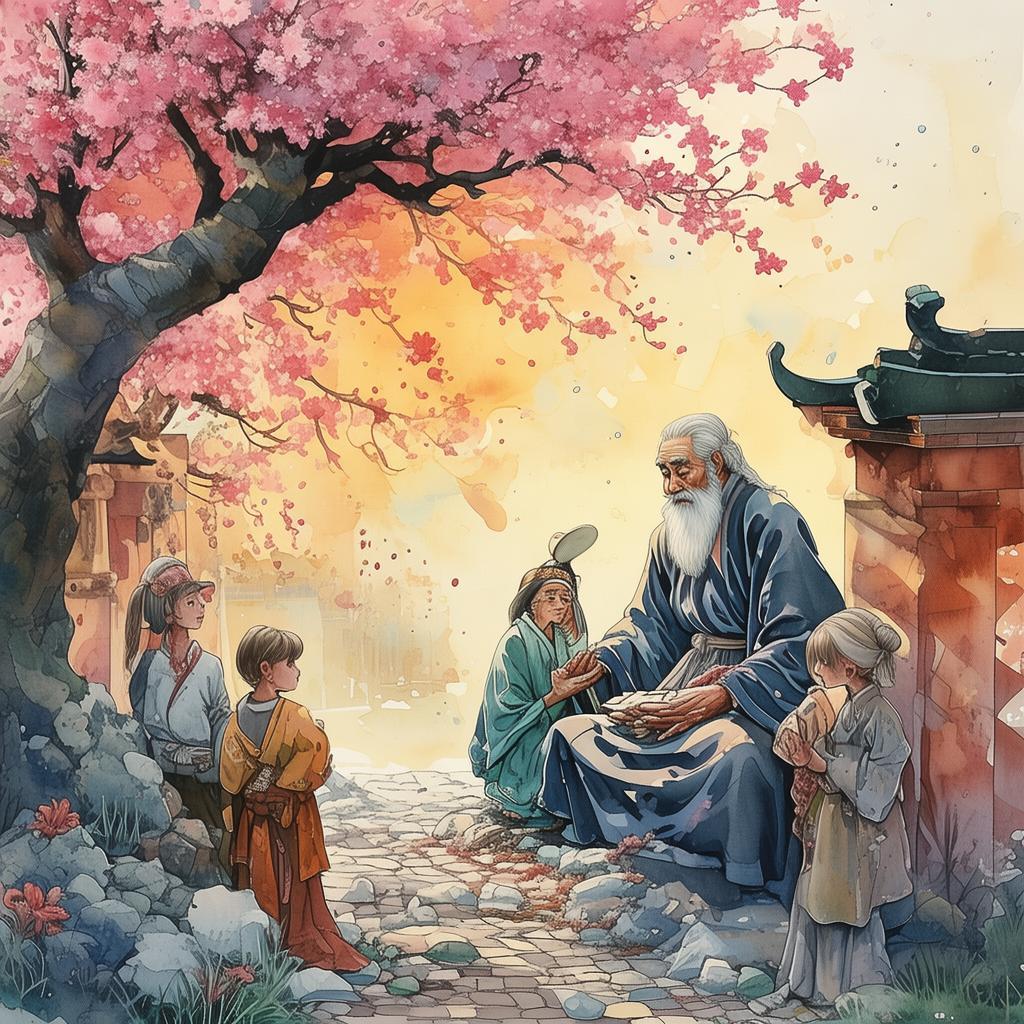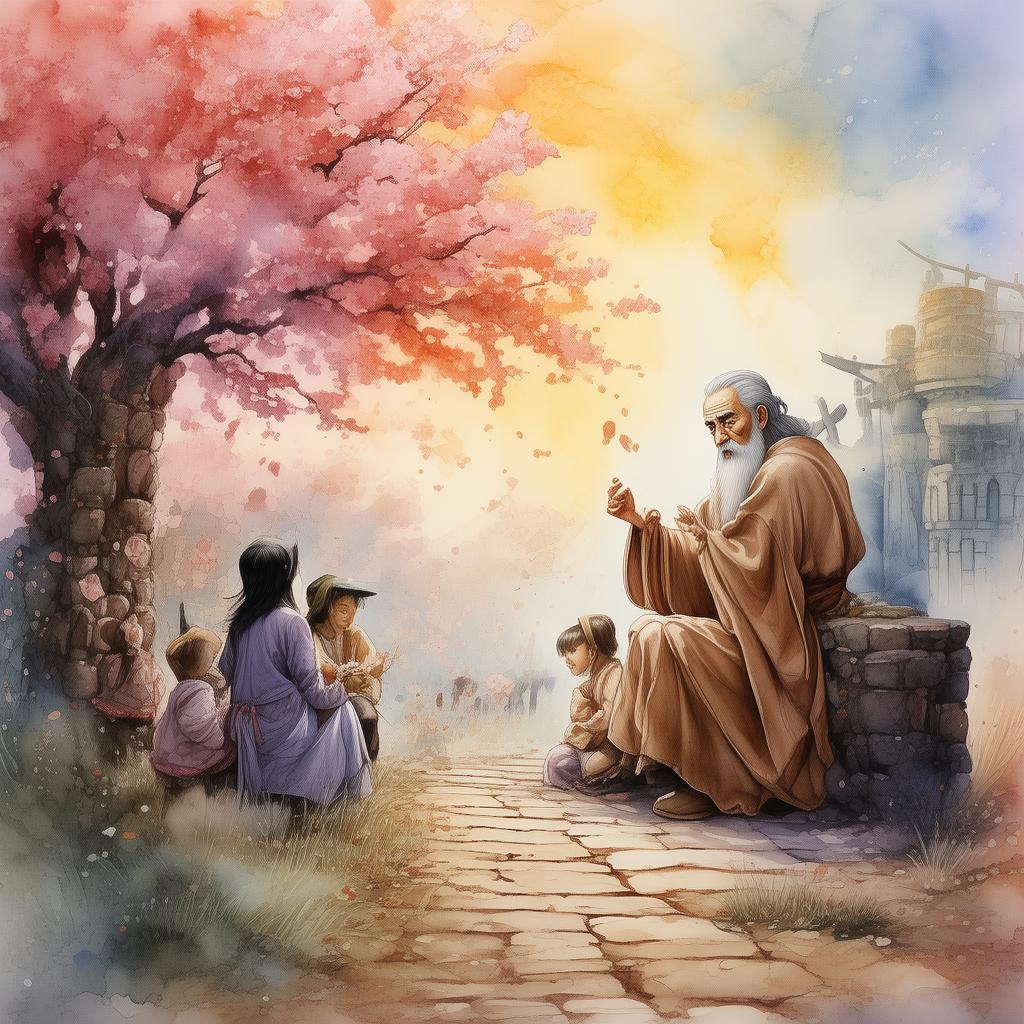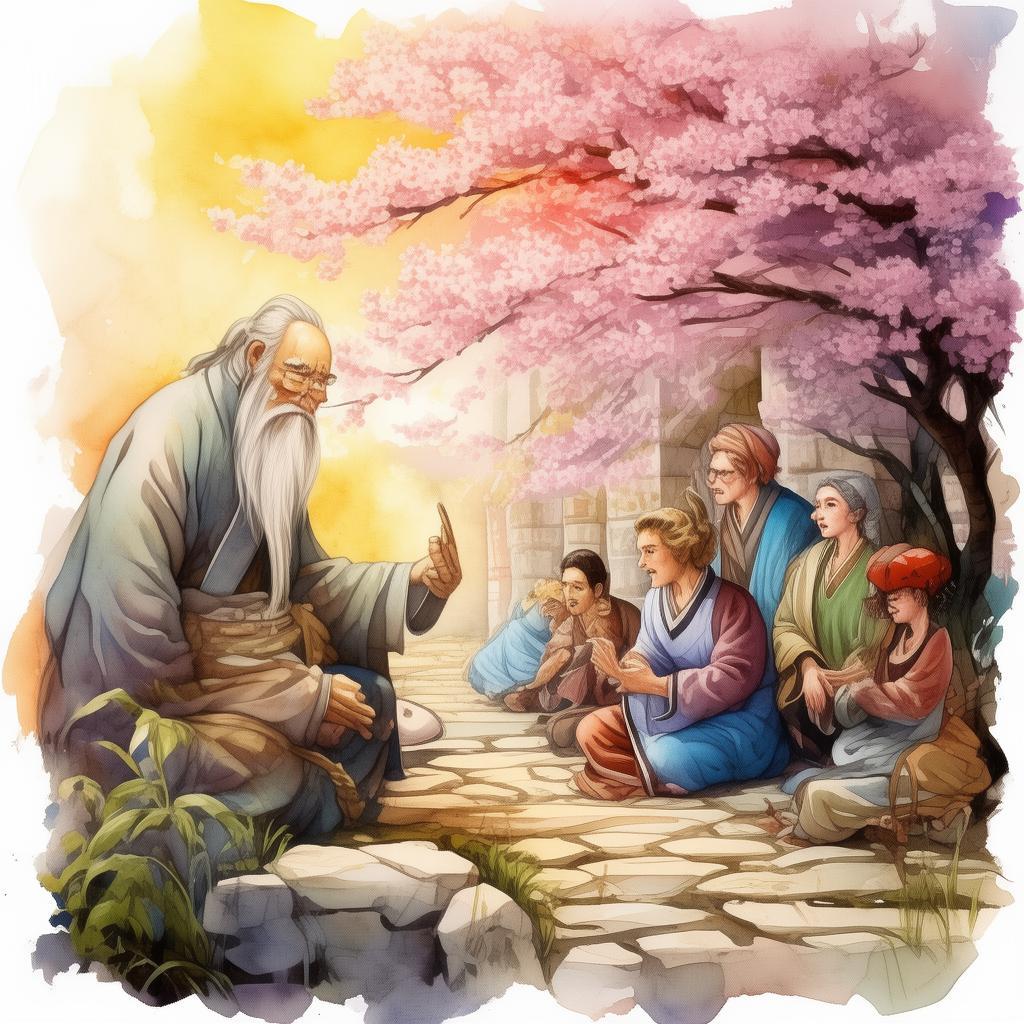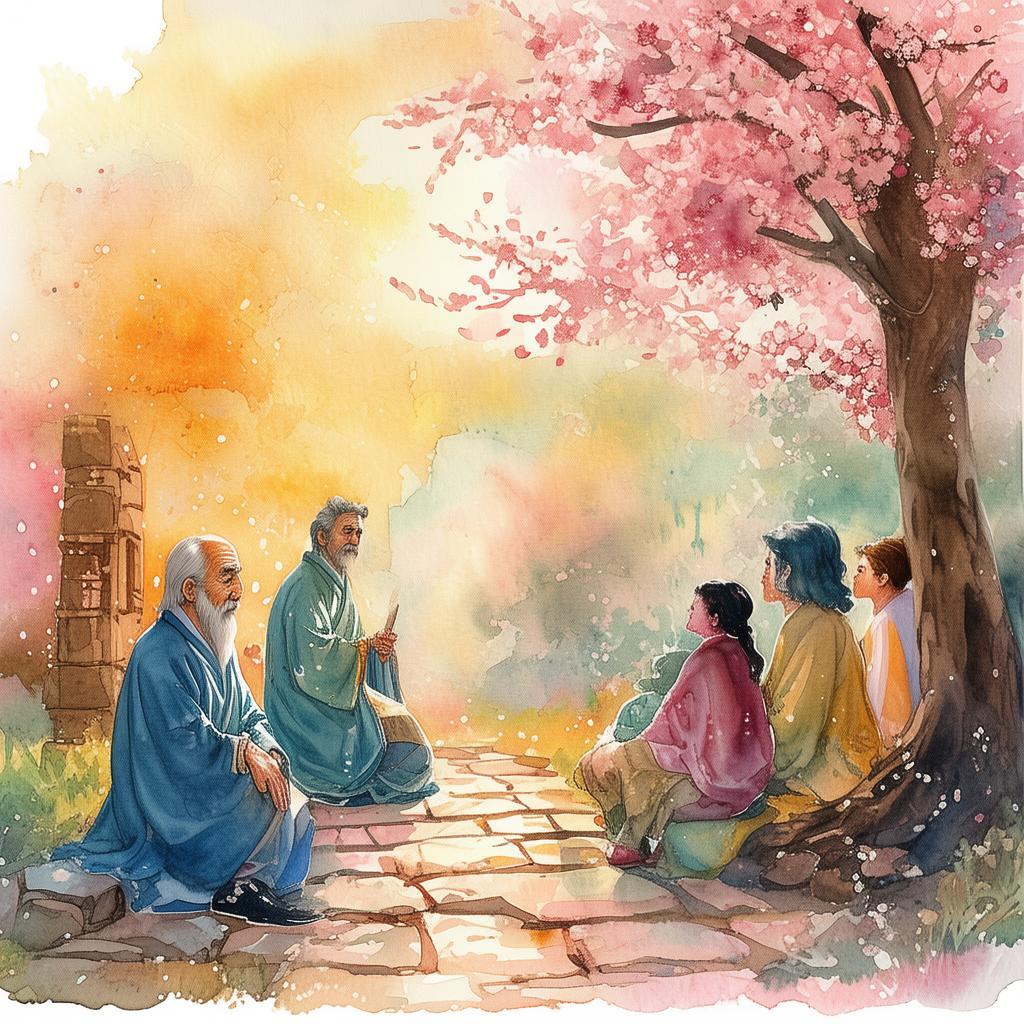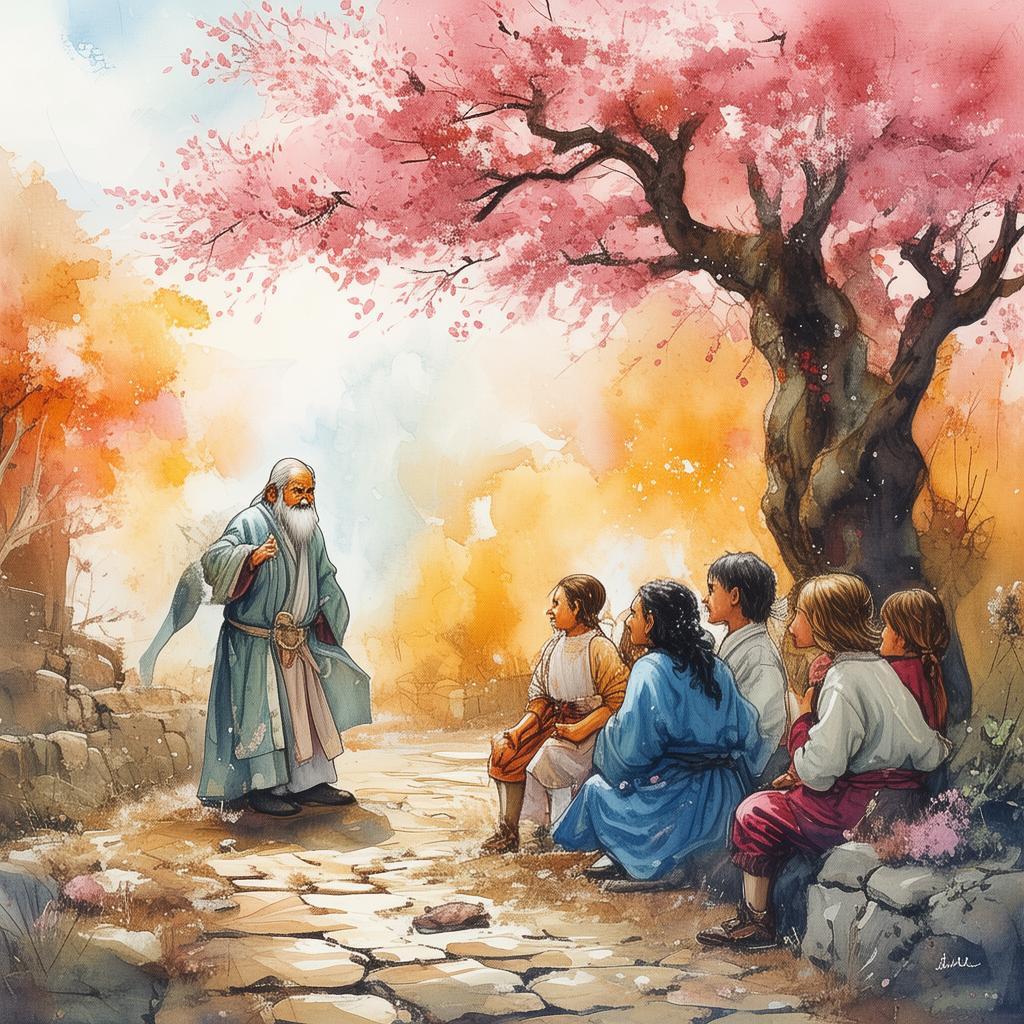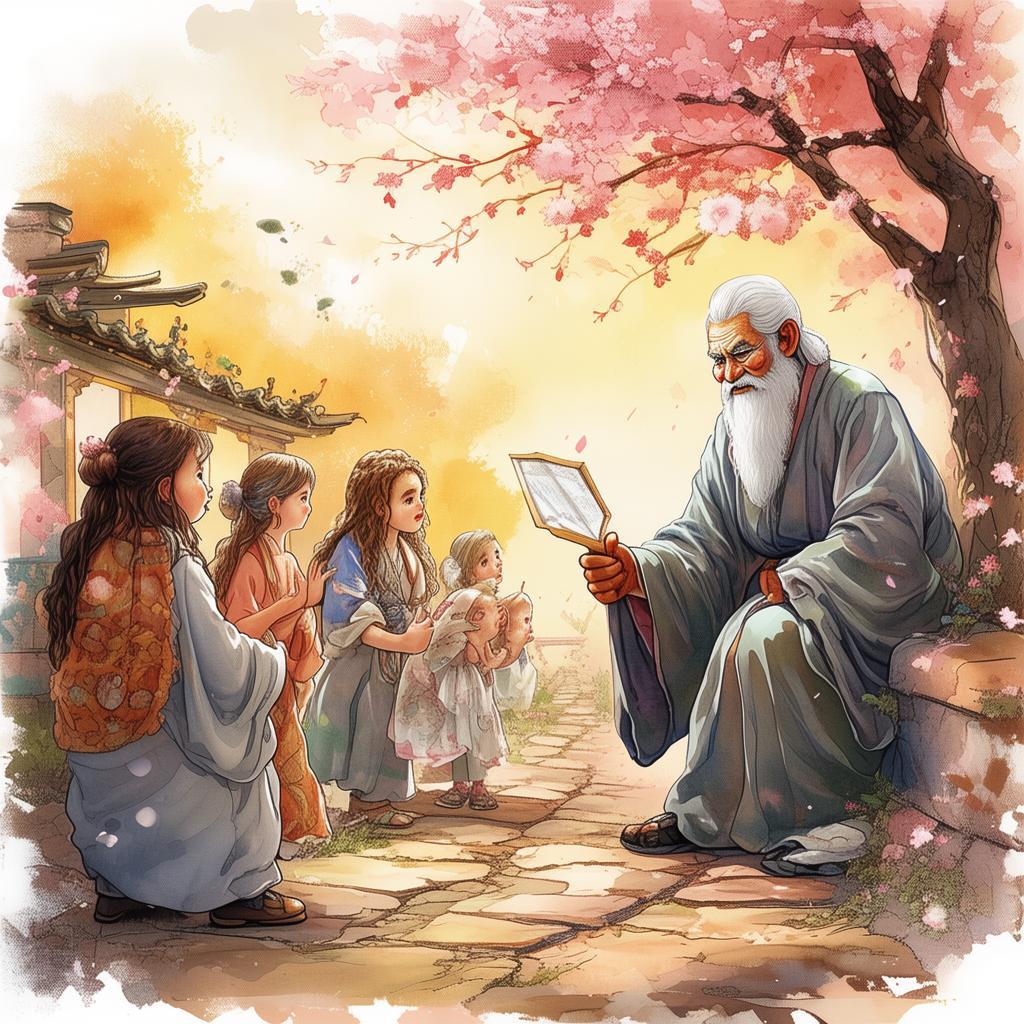The Cap of Destiny: The Unveiling of an Ancient Secret
In the heart of the ancient, misty mountains of the Eastern Empire, there lay a hidden valley known only to a select few. This was the resting place of the Cap of Destiny, an artifact that had been passed down through generations, shrouded in mystery and steeped in legend. The Cap was said to hold the key to a great prophecy, a prophecy that would decide the fate of the empire and its people.
In the village of Jinglong, nestled at the foot of these mountains, lived a young man named Ming. Ming was an ordinary shepherd, content with the simple life of his ancestors. He knew little of the prophecy or the Cap, for it was a tale told only in whispered hushes and ancient scrolls, hidden away in the libraries of the empire's capital.
One fateful day, while tending to his flock, Ming stumbled upon a hidden cave. The cave was hidden behind a thick veil of fog, and its entrance was marked by an ancient symbol that he had never seen before. Driven by curiosity, Ming ventured inside, and the cave led him deeper into the mountains, through winding tunnels and past eerie echoes of the past.
As Ming ventured further, he found himself standing before a massive, ornate door, adorned with intricate carvings of the empire's founding myths. His heart raced as he reached out to touch the door, and suddenly, the carvings began to glow. To his astonishment, the door swung open, revealing a room bathed in ethereal light. In the center of the room stood a pedestal, and upon it lay the Cap of Destiny.
Ming approached the pedestal cautiously, his fingers trembling as he reached out to touch the cap. As he did, the room seemed to pulse with energy, and a voice echoed in his mind, "The heir has been chosen. The time of destiny is at hand."
The villagers had spoken of the prophecy, a prophecy that spoke of a chosen one who would find the Cap and unlock its secrets. Ming realized that he was that chosen one. The voice continued, "To wear the Cap is to embrace your fate. To reject it is to deny your destiny."
Ming knew that he had to make a decision. He could leave the Cap behind and return to his life as a shepherd, or he could accept his fate and uncover the secrets of the Cap. The village elder, an ancient man with eyes that seemed to see into the heart of destiny, had once told Ming that the Cap would not be found by chance but by one who was meant to bear its weight.
Taking a deep breath, Ming placed the Cap upon his head. Instantly, a surge of energy coursed through him, and he felt as though he were part of something much greater than himself. The room around him seemed to change, and he found himself standing in a vision of the empire's past, present, and future.
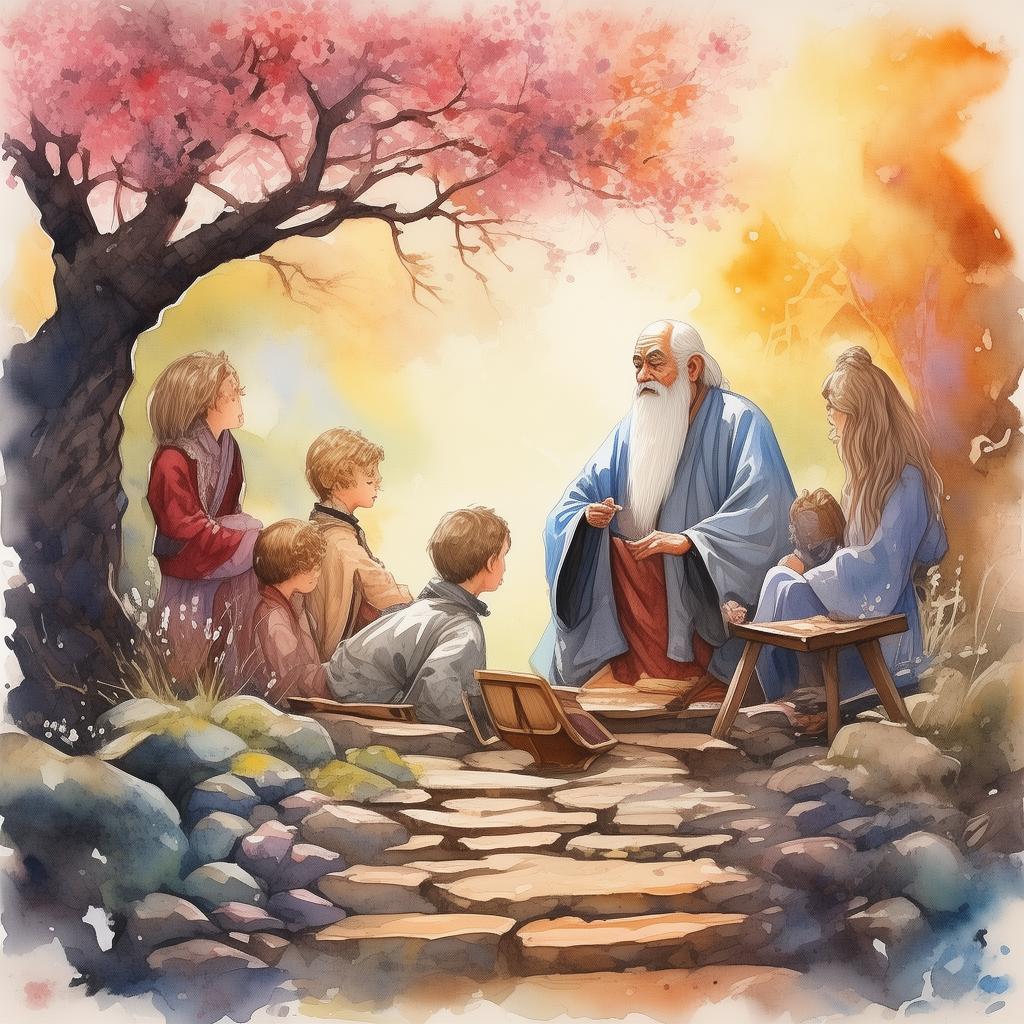
In the vision, he saw the rise and fall of empires, the triumphs and the tragedies of the people, and the unbreakable bonds of fate that connected them all. He saw the future, a future where the empire would be at peace, where the people would live in harmony, and where the Cap of Destiny would be the source of that peace.
But there was a price to pay. The Cap had a power that could not be contained; it could bring great prosperity but also great destruction. Ming realized that he had to be the one to control this power, to ensure that it would be used for the good of all.
With a newfound determination, Ming returned to the village, the Cap still upon his head. The village elder met him, his eyes twinkling with a mixture of awe and relief. "You have been chosen," the elder said. "Now, you must learn to harness the power of the Cap and fulfill the prophecy."
Ming embarked on a journey to learn the ancient arts and wisdom required to control the Cap's power. Along the way, he encountered allies and enemies, each with their own agendas and desires. But Ming remained steadfast, knowing that his destiny was intertwined with the fate of the empire.
As Ming's journey continued, he discovered that the Cap was not just a symbol of power but a beacon of hope. It was a reminder that the future was not written in stone but shaped by the choices of those who lived in the present. Ming learned that true power lay not in the Cap itself but in the courage and compassion of the people who wore it.
In the end, Ming returned to the mountains, the Cap in hand, ready to face whatever destiny had in store for him. The people of Jinglong, once skeptical of the prophecy, now looked to Ming with pride and hope. They had seen the change in him, the transformation from a simple shepherd to a guardian of destiny.
Ming placed the Cap upon his head once more, feeling the weight of his responsibility. As he did, a vision of the empire's future filled his mind, a vision of peace and prosperity. He knew that he had made the right choice, that he was the heir of destiny, and that he would lead his people to a brighter tomorrow.
The Cap of Destiny remained a symbol of the power of fate, a reminder that some destinies were written in the stars, but others were chosen by the heart. And so, Ming stood as a testament to the truth that sometimes, destiny is not a choice but a calling, and the path to fulfillment is found not in the pursuit of power but in the courage to embrace one's fate.
✨ Original Statement ✨
All articles published on this website (including but not limited to text, images, videos, and other content) are original or authorized for reposting and are protected by relevant laws. Without the explicit written permission of this website, no individual or organization may copy, modify, repost, or use the content for commercial purposes.
If you need to quote or cooperate, please contact this site for authorization. We reserve the right to pursue legal responsibility for any unauthorized use.
Hereby declared.
